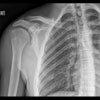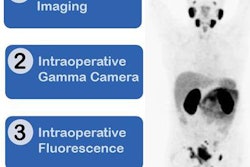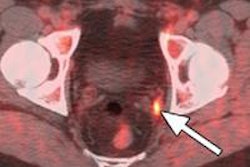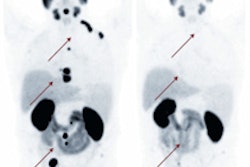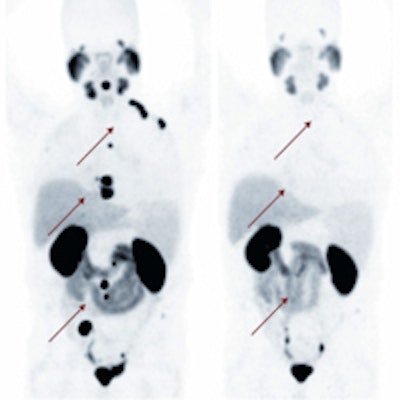
BALTIMORE - A PET radiotracer for prostate cancer that can be labeled with different radioisotopes for both diagnostic and therapeutic use won Image of the Year honors at the Society of Nuclear Medicine and Molecular Imaging (SNMMI) annual meeting.
The emerging imaging technique, developed at Heidelberg University Hospital and the German Cancer Research Center, uses a prostate-specific membrane antigen (PSMA) inhibitor called PSMA-617 to target the enzyme on the surface of prostate cancer cells, even if they have metastasized to other organs. PSMA-617 can be radiolabeled with gallium-68 (Ga-68) for diagnostic use and radiolabeled with lutetium-177 (Lu-177) for therapy.
In the study, which was led by Dr. Martina Benesova, follow-up with PET/CT and Ga-68 PSMA-617 showed a substantial reduction in radiotracer uptake, indicating a positive response to therapy. The researchers also found a major decrease in PSMA in the blood, from 38.0 ng/mL to 4.6 ng/mL.
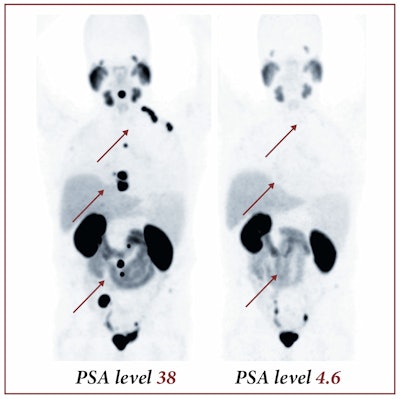 Image courtesy of SNMMI.
Image courtesy of SNMMI.The preclinical and early clinical experiences with PSMA-617 suggest that it is "suitable for theranostic application due to its high tumor uptake and the highly efficient clearance from the kidneys," wrote Benesova, who is from the division of radiopharmaceutical chemistry at the German Cancer Research Center, and colleagues in a study abstract. "The compound offers a high potential to improve the clinical management of prostate cancer in the future."
In announcing the Image of the Year Award, Dr. Peter Herscovitch, SNMMI's 2014-2015 president, said prostate cancer remains one of the main causes of cancer-related death among men worldwide.
"This new molecular imaging technology not only detects metastatic prostate cancer, but also can treat metastases noninvasively," he added. "It is the combined capability of diagnosis and therapy that makes this molecular theranostic so powerful."
Each year at its annual meeting, SNMMI chooses an image that exemplifies the most promising advances in the field of nuclear medicine and molecular imaging. The technologies captured in the images demonstrate the capacity to improve patient care by detecting disease, aiding diagnosis, improving clinical confidence, and providing a means of selecting appropriate treatments, according to the organization.


